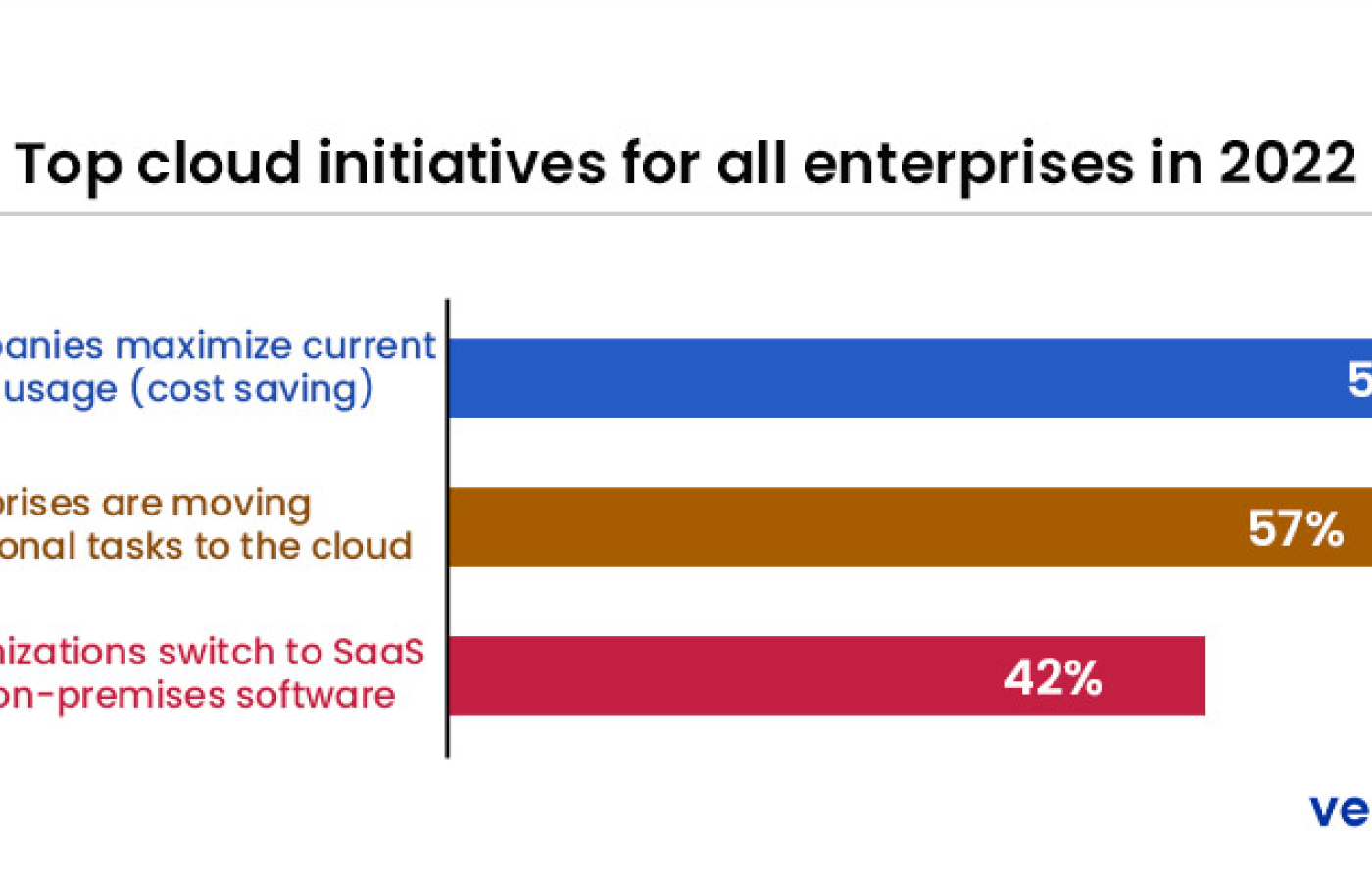
Embracing the Cloud: How High-Tech Companies are Unlocking its Full Potential
tl;dr
- High-tech companies are increasingly recognizing the transformational power of cloud technology, investing in cloud solutions to drive innovation, agility, and scalability.
- By adopting multi-cloud strategies, leveraging cutting-edge tools, and overcoming barriers to cloud adoption, these businesses are unlocking the full potential of the cloud and staying ahead in the competitive landscape.
The cloud has become a game-changer for high-tech companies as they strive to innovate and stay competitive in today's fast-paced digital landscape. With the ability to deliver cost-effective, flexible, and scalable solutions, the cloud is no longer just a storage option but a strategic enabler for businesses across various sectors[1][2]. This article will explore how high-tech companies are embracing the cloud, unlocking its full potential, and reaping significant benefits.
According to Accenture, high-tech companies are increasingly recognizing the potential of cloud technology to transform their business models, foster innovation, and reshape the industry landscape[1]. Cloud adoption is no longer just about cost savings; it's about driving innovation, agility, and scalability. By leveraging cloud-based solutions, high-tech companies can more quickly bring new products and services to market, as well as seamlessly adapt to evolving customer needs and market conditions[1][2].
Thoughtworks suggests that to realize the cloud's true potential, organizations must adopt a holistic and strategic approach[2]. This includes embracing multi-cloud strategies that enable them to utilize multiple cloud providers and avoid vendor lock-in. By diversifying their cloud portfolio, high-tech companies can optimize their IT infrastructure and reduce the risk of service disruptions[2][4]. Furthermore, a multi-cloud strategy allows organizations to access unique features and services from different cloud providers, which can be beneficial in specialized use cases or when implementing innovative solutions.
McKinsey also highlights the enormous opportunities that cloud technology presents, with a trillion-dollar prize up for grabs[3]. The report notes that companies that successfully unlock the full potential of the cloud can achieve significant competitive advantages, such as faster time-to-market, increased agility, and improved customer experiences. To seize these opportunities, high-tech companies must overcome various challenges, including legacy IT systems, organizational inertia, and lack of cloud expertise[3].
One approach to overcoming these challenges is by leveraging cloud-native architectures and embracing a DevOps mindset. By adopting modern application development practices, high-tech companies can accelerate the pace of innovation and streamline the delivery of new products and services. Additionally, investing in cloud-specific training and skill development for employees can help businesses address the talent gap and ensure that they have the expertise needed to capitalize on cloud technology.
Dell's blog post emphasizes the importance of unlocking the opportunities of multi-cloud environments[4]. By adopting a multi-cloud strategy, high-tech companies can leverage the best of different cloud providers and ensure optimal performance, security, and scalability. Moreover, multi-cloud enables organizations to take advantage of cutting-edge tools and technologies, such as artificial intelligence (AI), machine learning (ML), and advanced analytics, to drive innovation and stay ahead of the competition[4].
These advanced technologies can be used to create more personalized customer experiences, enhance operational efficiency, and enable data-driven decision-making. For example, AI and ML can help businesses to optimize their supply chain management, predict customer behavior, and identify emerging trends, while advanced analytics can provide actionable insights that drive continuous improvement and innovation.
Another crucial aspect of unlocking the full potential of the cloud is ensuring robust security and compliance measures. High-tech companies need to adopt a comprehensive approach to cloud security, which includes implementing robust identity and access management, data encryption, and network security solutions. Additionally, organizations must consider industry-specific regulations and compliance requirements when selecting and configuring their cloud services. Security is a focus that often gets overlooked by new businesses who are trying to integrate the new technology into their company. This is a costly mistake, that will cause more holes that businesses will have to try and patch.
Conclusion
In conclusion, the cloud is transforming the high-tech industry, offering unprecedented opportunities for innovation, agility, and scalability. By embracing multi-cloud strategies, leveraging state-of-the-art tools and technologies, overcoming barriers to adoption, and ensuring robust security and compliance measures, high-tech companies can unlock the cloud's full potential and stay ahead in the competitive landscape. As the cloud continues to evolve, businesses that adapt and harness its power will be better positioned to thrive in an increasingly digital world.
References
[1] Accenture: https://www.accenture.com/nl-en/blogs/insights/high-tech-companies-are-recognizing-the-clouds-full-potential#:~:text=High%2Dtech%20companies%20are%20recognizing%20the%20cloud's%20potential%20to%20transform,the%20high%2Dtech%20cloud%20landscape.
[2] Thoughtworks: https://www.thoughtworks.com/en-us/insights/articles/realizing-clouds-true-potential
[3] McKinsey: https://www.mckinsey.com/capabilities/mckinsey-digital/our-insights/clouds-trillion-dollar-prize-is-up-for-grabs
[4] Dell: https://www.dell.com/en-us/blog/unlocking-the-opportunities-of-multi-cloud/
Image Source: https://www.veritis.com/wp-content/uploads/2022/09/top-cloud-initiative…


